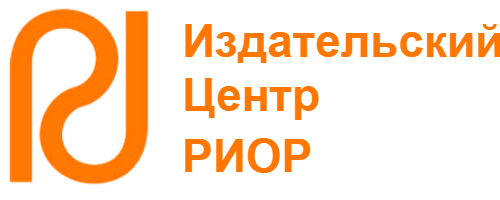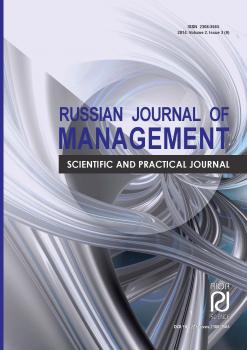с 01.01.2010 по настоящее время
Российская таможенная академия (кафедра экономической теории и экономики таможенного дела, профессор)
сотрудник
г. Москва и Московская область, Россия
ВАК 08.00.05 Экономика и управление народным хозяйством (по отраслям и сферам деятельности, в том числе: экономика, организация и управление предприятиями, отраслями, комплексами; управление инновациями; региональная экономика; логистика; экономика труда; экономика народонаселения и демография; экономика природопользования; экономика предпринимательства; маркетинг; менеджмент; ценообразование; экономическая безопасность; стандартизация и управление качеством продукции; землеустройство; рекреация и туризм)
ВАК 08.00.10 Финансы, денежное обращение и кредит
ВАК 08.00.12 Бухгалтерский учет, статистика
ВАК 08.00.13 Математические и инструментальные методы экономики
ВАК 08.00.14 Мировая экономика
УДК 339 Торговля. Международные экономические отношения. Мировое хозяйство
ГРНТИ 06.71 Отраслевая структура экономики
ОКСО 38.05.02 Таможенное дело
ББК 6549 Экономика отраслей непроизводственной (социально-культурной) сферы
BISAC BUS000000 General
Данное исследование посвящено актуальной проблеме оценки ключевых направлений деятельности таможенных органов с помощью интеллектуального моделирования. В статье проведен сравнительный анализ развития подходов к оценке эффективности деятельности таможенных органов в Российской Федерации и некоторых зарубежных странах, что позволило выявить генезис, современные тенденции и направления развития методики оценки деятельности таможенных органов по предмету к их потребностям. С применением методологии интеллектуальных измерений разработана компьютеризированная математическая модель для оценки уровня достижения целей при выполнении фискальных функций таможенными органами. Моделирование осуществляется с помощью экспертных знаний, а в качестве моделирующего используется алгоритм Э. Мамдани. Компьютерная реализация математической модели осуществляется на платформе программной системы MatLab с помощью пакета программ Fuzzy Logic Toolbox. Количественные результаты тестирования нечеткой модели используются в качестве исходных данных для построения модели множественной регрессии, которая позволила получить линейную функцию, связывающую эндогенные и экзогенные переменные. Результаты исследования могут быть применимы в управлении национальными таможенными органами (Российская Федерация и Евразийский экономический союз) и послужат основой для разработки моделей оценки деятельности таможенных органов.
таможенная оценка, таможенные органы, измерение эффективности, финансы, ресурсы, результаты, показатели оценки, сбалансированная система показателей, нечеткая логика, интеллектуальное моделирование, MatLab
1. Afonichkin A.I., Zhurova L.I. Systematization of approaches to assessing the effectiveness of the strategy for the development of micro-level economic systems // Bulletin of the Samara Municipal Institute of Management, 2019, № 1, p. 20-31.
2. Bobrova A.V. Assessment of the performance of Russian customs authorities. World Customs Journal. 2017, Volume 11, Number 2, p. 37-48.
3. Bukht R., Heeks R. (2018) Defining, conceptualising and measuring the digital economy // International Organisations Research Journal. 13(2), p. 143-172.
4. Choong K.K. Use of mathematical measurement in improving the accuracy (reliability) & meaningfulness of performance measurement in businesses & organizations // Measurement, vol. 129, December 2018, p. 184-205.
5. Gupanova Y.E., Goremykina G.I. (2023). Measurement of Customs Performance in Conditions of Customs Institute Intellectualization. In: Makarenko, E.N., Vovchenko, N.G., Tishchenko, E.N. (eds) Technological Trends in the AI Economy. Smart Innovation, Systems and Technologies, vol 625. Springer, Singapore. https://doi.org/10.1007/978-981-19-7411-3_30.
6. Ireland R., Cantens Th., Yasui T. An Overview of Performance Measurement in Customs Administrations: WCO Research Paper No. 13 (2011). http://www.wcoomd.org.
7. Kahlert J. Fuzzy Control fur Ingenieure. Braunschweig, BRD: Vieweg Verlag, 1995, 308 p.
8. Komleva N., Khlopkova O., Matthew, H. Neuroevolutional methods for decision support under uncertainty // International Journal of Civil Engineering and Technology. Volume 10, Issue 2, February 2019, p. 1263-1276.
9. Korol T. The implementation of fuzzy logic in forecasting financial ratios (2018) Contemporary Economics, 12 (2), pp. 165-188. doi:https://doi.org/10.5709/ce.1897-9254.270
10. Krichevsky M.L., Martynova J.A. Selecting an enterprise development strategy using machine learning methods/ International Journal of Engineering and Advanced Technology, V.8, Issue 4, April 2019, p. 1091-1096.
11. Leshchev S.V. Artificial-intellectual agency in the space of humanitarian dimension/S.V. Leshchev//Modern problems of the humanities and social sciences. - 2021. - № 1(33). - S. 65-68. - EDN LHJGPA.
12. Mamdani E.H., Assilian S. An experiment in linguistic synthesis with a fuzzy logic controller // Int. J. Man-Mach, 1975, Vol. 7, №1, P. 1-13.
13. Piegat A., Fuzzy Modeling and Control, Physica- Verlag, A Springer-Verlag Company, Heidelberg, 2011, 798 p.
14. Post E.L. Formal Reductions of the General Combination Decision Problem // American Journal of Mathematics, V. 65, 1943, p. 197-215.
15. Potapova, Z. E. Development of a system for measuring the intellectual strength of actors/Z. E. Potapova, I.K. Kisilevich//Modeling and data analysis. - 2021. - T. 11, NO. 3. - S. 57-73. - DOIhttps://doi.org/10.17759/mda.2021110304. - EDN MZRGWQ.
16. Prokopchina, S. V. Intellectual measurements in the era of digitalization: new opportunities and experience in use/S. V. Prokopchina//Soft measurements and calculations. - 2022. - T. 60, NO. 11. - S. 5-12. - DOIhttps://doi.org/10.36871/2618-9976.2022.11.001. - EDN LRNYKH
17. Seth P. Performance Measurement in Customs. http://www.wcoomd.org.
18. Sevastyanova, S.A., Sevastianova, A.L. Information and Knowledge: From a Resource to a Key Factor in Progres. Lecture Notes in Networks and Systems Volume 133, 2021, P. 51-58.
19. Strashkova V.O. Performance benchmark of customs authorities. Bulletin of the Scientific Conferences, 2-4(2), 2015. P. 142-144.
20. Strategy for the Development of the Customs Service of the Russian Federation until 2030: The Russian Federation Government decree of 23.05.2020 No. 1388-r.
21. The Federal Law of Russian Federation of 03.08.2018 No. 289-FZ "On customs regulation in the Russian Federation and about introduction of amendments to separate acts of the Russian Federation”.
22. The Russian Federation Government decree of 29.09.2012 No. 994 “About the System of indicators of customs authorities of the Russian Federation perfomance, an order and a technique of their monitoring”.
23. Vlasov, D. A. Content of applied mathematical training of an economist in digitalization/D. A. Vlasov//Electronic libraries. - 2020. - T. 23, NO. 1-2. - S. 25-35. - DOIhttps://doi.org/10.26907/1562-5419-2020-23-1-2-25-35. - EDN WBXODM.
24. Wang L.X. Adaptive fuzzy systems and control, design and stability analysis. Englewood Cliffs: Prentice Hall, 1994, 274 p.
25. Yashin, B. L. Non-classical logics in modern science/B. L. Yashin//Philosophical thought. - 2023. - № 1. - S. 15-25. - DOIhttps://doi.org/10.25136/2409-8728.2023.1.39350. - EDN BIGNVX.
26. Zadeh, L.A. Fuzzy sets as a basis for a theory of possibility. Fuzzy Sets Syst. 1978, 1, 3-18.
27. Zakrevskaya, E. A. Multidimensional statistical methods of processing socio-economic information/E. A. Zakrevskaya, D. A. Maksimov, N. A. Moiseev. - Moscow: Plekhanov Russian University of Economics, 2022. - 148 p. - ISBN 978-5-7307-1958-3. - EDN UXLOQC.














